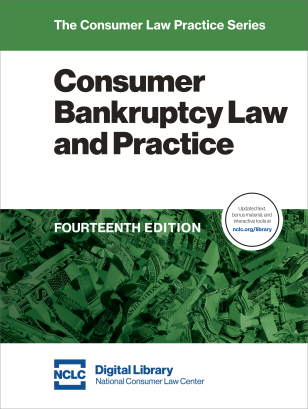COVID-19 Bankruptcy Relief Extension Act Signed by President March 27
On March 27, 2021, just hours before the CARES Act bankruptcy provisions were about to sunset, President Biden signed COVID-19 Bankruptcy Relief Extension Act of 2021, Pub. L. No. 117-5 (Mar. 27, 2021) (H.R. 1651). The bill extends the temporary bankruptcy provisions under the CARES Act for an additional year, until March 27, 2022.
The original bill passed by the House also would have extended the bankruptcy provisions in the Consolidated Appropriations Act of 2021 (CAA). However, the CAA extension provisions were stripped from the bill in the Senate. As a result, the CAA provisions will continue to sunset on December 27, 2021.
To help attorneys deal with the different sunset dates, this “cheat sheet” of the ten bankruptcy provisions in the CARES Act and Consolidated Appropriations Act lists the provisions by sunset date. Each provision is accompanied by the Public Law and United States Code cites, links for more detail in NCLC articles (open to the public), and to NCLC’s Consumer Bankruptcy Law and Practice (subscribers only). The cheat sheet is also available in table format here.
- CAA = Consolidated Appropriations Act of 2021, Public Law No. 116-260
- CARES Act = Coronavirus Aid, Relief, and Economic Security Act, Pub. L. No. 116-136
Bankruptcy Relief Provisions Sunsetting on December 27, 2021
COVID stimulus payments (recovery tax rebates) are not property of the estate (CAA, div. FF, tit. 10, § 1001(a); 11 U.S.C. § 541(b)(11)). More detail at: NCLC’s “New Consumer Bankruptcy Protections Now Effective”; NCLC’s “Consumer Law Implications of the American Recovery Plan Act”; NCLC’s Consumer Bankruptcy Law and Practice § 2.5.6.
.
COVID stimulus payments (recovery tax rebates) are not subject to the “operation of any bankruptcy or insolvency law” (CAA, div. N, § 272(d), [amends Internal Revenue Code, adding new 26 U.S.C. § 6428A). More detail at NCLC’s “New Consumer Bankruptcy Protections Now Effective”; NCLC’s Consumer Bankruptcy Law and Practice § 2.5.6.
Chapter 13 debtors may seek an early discharge if the debtor has missed three or fewer mortgage payments due to a COVID-related hardship or has entered into a loan forbearance or modification (CAA, div. FF, tit. 10, § 1001(b); 11 U.S.C. § 1328(i)(1)). More detail at NCLC’s “New Consumer Bankruptcy Protections Now Effective”; NCLC’s Consumer Bankruptcy Law and Practice § 8.8.1 and § 15.1.
Debtors who are in a pending bankruptcy or have received a discharge cannot be denied a mortgage forbearance, protection under the foreclosure and eviction moratorium, and related relief provided under the CARES Act (CAA, div. FF, tit. 10, § 1001(c); 11 U.S.C. § 525(d)). More detail at NCLC’s “New Consumer Bankruptcy Protections Now Effective”; NCLC’s Consumer Bankruptcy Law and Practice § 11.6.1.5a.
Mortgage servicers may file a “CARES forbearance claim,” which is a supplemental proof of claim for the amount forborne under a loan forbearance granted to a debtor under the CARES Act (CAA in div. FF, tit. 10, § 1001(d); 11 U.S.C. § 501(f) and § 502(b)(9) (claim must be filed no later than 120 days after expiration of forbearance). More detail at NCLC’s “New Consumer Bankruptcy Protections Now Effective”; NCLC’s Consumer Bankruptcy Law and Practice § 11.6.1.5a.
Debtors and any parties, including a mortgage creditor, may move to modify the debtor’s plan to provide for a CARES forbearance claim (CAA div. FF, tit. 10, § 1001(e); 11 U.S.C. § 1329(e)). More detail at NCLC’s “New Consumer Bankruptcy Protections Now Effective”; NCLC’s Consumer Bankruptcy Law and Practice § 11.6.1.5a.
Debtors may have utility service maintained or restored after filing bankruptcy without paying a deposit, as long as the debtor pays for postpetition service (CAA div. FF, tit. 10, §1001(h); 11 U.S.C. § 366(d)). More detail at NCLC’s “New Consumer Bankruptcy Protections Now Effective”; NCLC’s Consumer Bankruptcy Law and Practice § 9.8.2.
Bankruptcy Relief Provisions Sunsetting on March 27, 2022
COVID-related payments, including recovery tax rebates and child tax credit payments, are excluded from current monthly income (CARES Act § 1113(b)(1)(A); 11 U.S.C. § 101(10A)(B)(ii)(V)). More detail at NCLC’s New Consumer Bankruptcy Protections Now Effective”; NCLC’s Consumer Bankruptcy Law and Practice § 13.4.3.2.7.
COVID-related payments, including recovery tax rebates and child tax credit payments, are not disposable income (CARES Act § 1113(b)(1)(B); 11 U.S.C. § 1325(b)(2)). More detail at NCLC’s “New Consumer Bankruptcy Protections Now Effective.”
Chapter 13 debtors may seek plan modification, if the plan was confirmed before March 27, 2021 and the debtor is experiencing a COVID-related hardship, that would extend plan payments for up to seven years after initial payment on original plan was due (CARES Act § 1113(b)(1)(C); 11 U.S.C. § 1329(d)(1)). More detail at: NCLC’s “Major Consumer Protections Announced in Response to COVID-19”; NCLC’s Consumer Bankruptcy Law and Practice § 8.7.4 and § 12.6.3.


